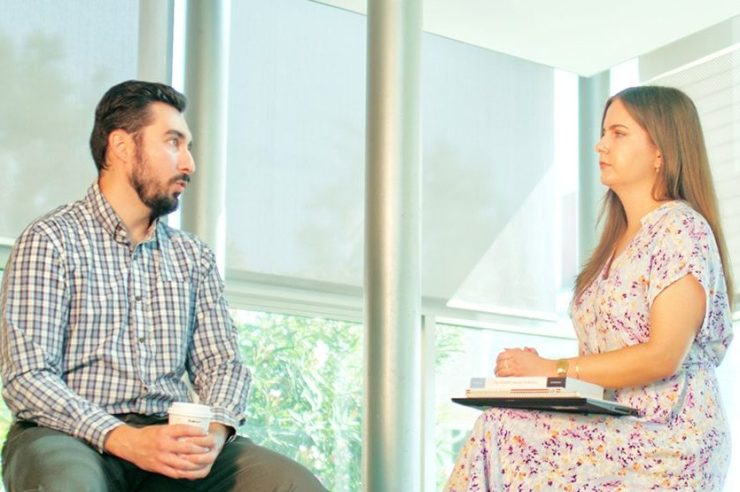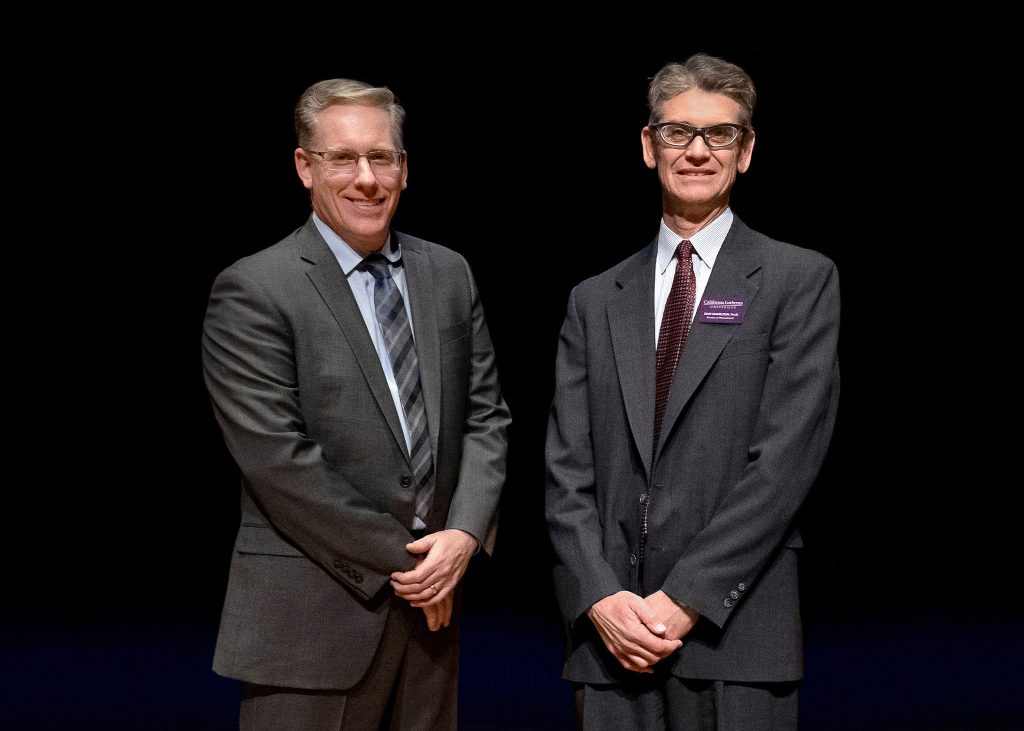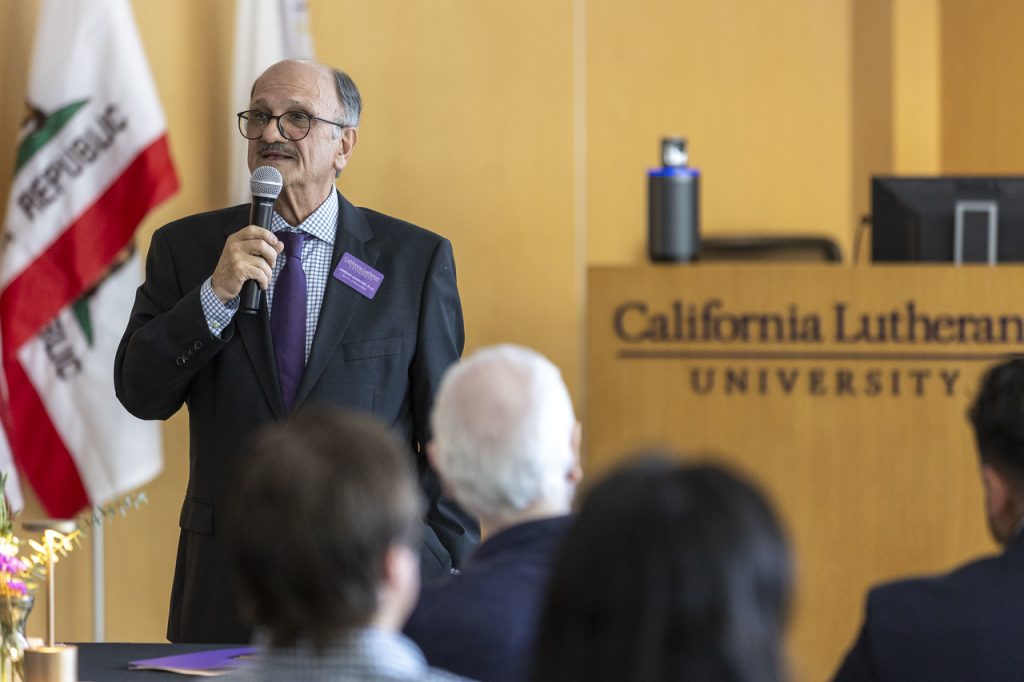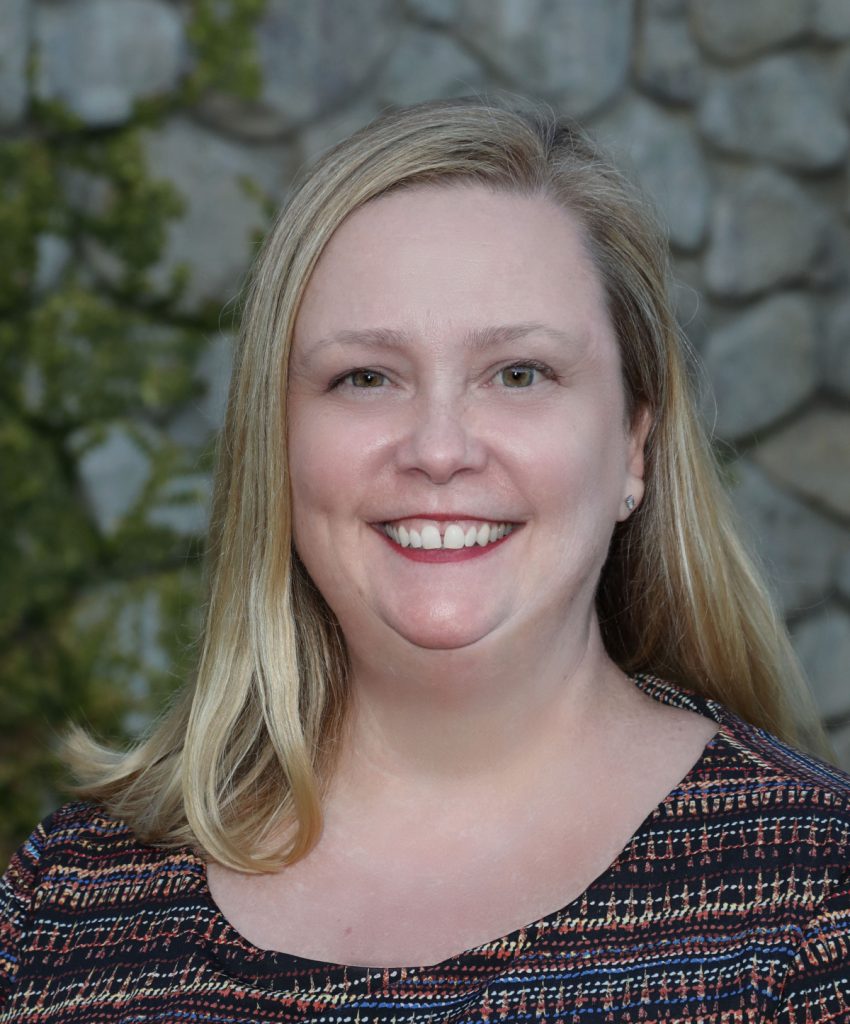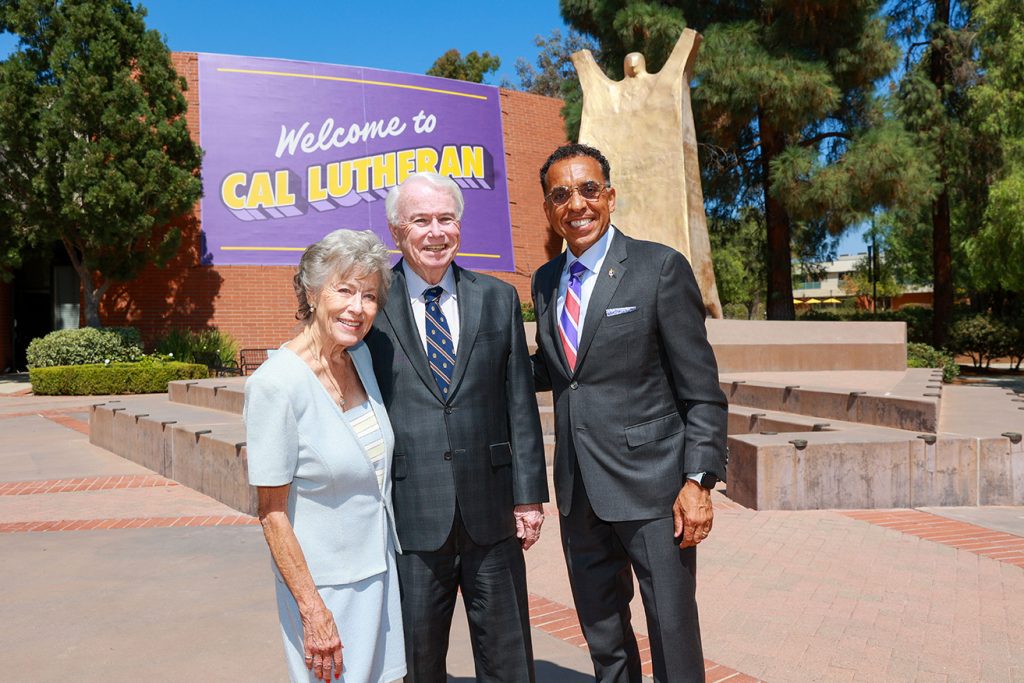Every year, local businesses become clients of Cal Lutheran graduate students in MBA 595: Consulting to Business. Each small- and medium-sized company brings unique needs and personalities to this capstone course (one of several options in the MBA program). That means a different experience every time for the master’s students, with the space to apply theory, create strategies and take risks.
The instructor, Marin M. Kakachev EMBA ‘20, divides students into small teams with different backgrounds and skills. He arranges for them to have weekly contact with their client, on top of time to meet and learn from one another. And he encourages them to chase ideas.
Most recently, New West Symphony came in search of ways to leverage a digital archive. As the COVID-19 pandemic eased, the orchestra found itself sitting on hundreds of gigabytes of live concert recordings, a byproduct of engaging with a suddenly housebound audience in Thousand Oaks and Camarillo. Students responded with proposals to generate revenue and attention, taking inspiration from business models including online gaming.
One year earlier, the client was an engineering startup looking to serve makers of CBD products. Elite Engineering of Camarillo had developed a handheld device to allow cannabis growers to test crops on the spot for contaminants or too much THC, instead of sending samples away to a lab. At the same time, the startup was looking for additional markets to target with the device, which requires no mixing, lab coats or chemistry expertise.
Students enjoyed applying their skills to a startup in an emerging industry. Looking back on the course, Marcos Robles ‘19, MBA ‘21 realized that he also liked doing it for free.
“It was just such a fun experience, to be part of something that you’re not getting paid for,” said Robles, a data analyst for a medical devices maker. “You’re doing it for fun, so that gives you more leeway to become artsy with it and try new things, new methods. The ability to take risks without having to go back to your boss and get approval for something.”
So how well did this approach serve Elite Engineering in the spring of 2021?
According to the founder and CEO, Bob Kay, Cal Lutheran master’s students “did their homework,” identifying seven large secondary markets for the chemical testing technology. In his estimation, two of those markets looked unlikely to pan out for the company. Another one will be temporarily set aside, he said, because of regulatory hurdles the company would face before implementation.
But four of the secondary markets fleshed out in the MBA course now figure prominently in Kay’s pitch to new investors. Kay added that two of those, the cosmetics and dietary supplements markets, had been completely overlooked by the company prior to the course — “not on our radar.” Meanwhile, input from the students elevated the importance for Elite Engineering of the precision-farming trends grouped under the label Agriculture 4.0.
Students came forward with other ideas that Kay and his daughter Stephanie Kay, the head of marketing, are still mulling. “One group suggested driving around in a truck and doing little pop-up demos,” he recalled.
Supported learning experiences
Kakachev, or “Professor Marin,” is the nearest thing to a supervisor for student consultants. He sets deadlines and an expectation of open communication. He holds his own Cal Lutheran EMBA, earned after a decade of work in financial services, and sees the capstone course as a final chance to challenge students’ accustomed ways of thinking.
“It’s not just that this is hands-on,” he said. “It’s that it’s a safe space to fail. Many of our work environments are just the opposite: high performance, low tolerance for failure and mistakes.” In Kakachev’s view, a student who devotes a week of research to a business idea, only to discover that it’s not feasible, has not wasted the week.
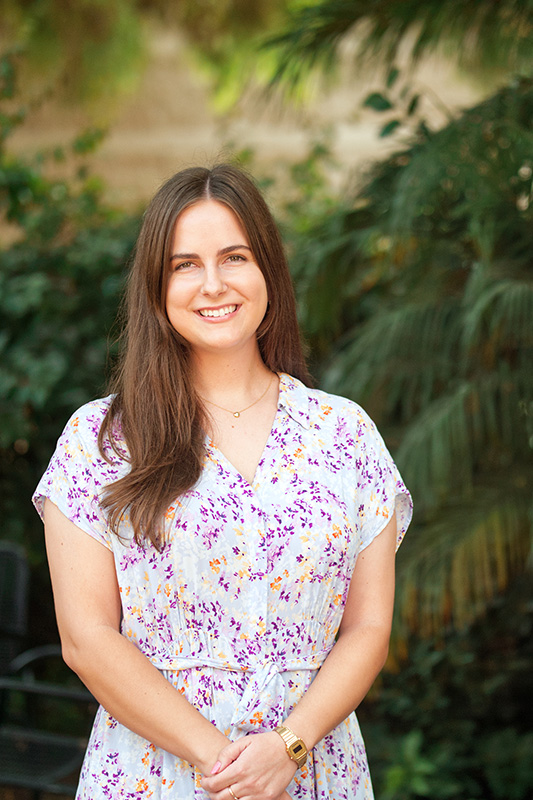
A specialist in finance, Brandon Danziger ‘20, MBA ‘21 measured the size of Elite Engineering’s primary market by calculating the minimum number of tests conducted at the top 10 growers. He gathered information about the space they allocated for crops and their per-batch testing requirements, taking agricultural methods such as vertical growing into account. He said Kakachev’s multiple reviews improved his product, which resembles the spreadsheets he now builds for work.
Andrea Teodorescu ’17, MBA ’20 worked Elite Engineering during her MBA capstone.
Like many of her classmates, Andrea Teodorescu ‘17, MBA ‘20 was working full time when she enrolled. In her fourth year on the corporate side of a publicly traded restaurant chain, she didn’t know much about CBD or handheld robotics. But during the MBA capstone course, she realized how much she enjoyed doing research, working on a team, and learning face to face at open Q&A sessions with company leaders. That year, she made a job transition from finance to investor relations.
“The fact that we were able to consult a real local business is something that will carry with me probably throughout my entire career,” she said. “That’s rare to experience unless you specifically work in consulting.”
She said the experience gave her confidence to improve processes at work. And the engagement of her MBA professors in small classes made her want to eventually teach.
“Professor Marin was always available to answer our questions,” she said. “We were able to send him sections of our essays. It’s just a different experience at Cal Lutheran. You really have the sensation that your professors want you to succeed. I’m so glad that I went back there for my master’s. If they had a doctoral program in something business related, I would probably be in it right now.”
Learn more about the Cal Lutheran MBA program at CalLutheran.edu/mba.


